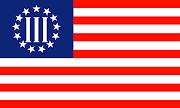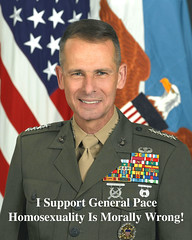Giuliani's "Strict Constructionism"
From Townhall.com
By: Jacob Sullum
Despite his promise to appoint "strict constructionists" to the Supreme Court if he is elected president, Rudy Giuliani recently said he has no interest in overturning Roe v. Wade, the 1973 decision that discovered a previously unnoticed constitutional right to abortion. Offending social conservatives (and strict constructionists) even further, he told CNN this constitutional right may require government financing of abortions for women who otherwise cannot afford them.
Since Giuliani also claims to support "the right to bear arms" (a right that is actually mentioned in the Constitution), he should, by similar logic, advocate the use of taxpayer money to buy guns for poor people. But the idea would never occur to him, because his sudden interest in the Second Amendment, like his sudden interest in strict constructionism, is merely an affectation intended to allay the concerns of Republican primary voters.
In his stump speeches, Giuliani, whose campaign Web site calls him "a strong supporter of the Second Amendment," praises the federal appeals court decision that last month overturned the District of Columbia's ban on keeping guns in the home for self-defense. Yet that ban is only slightly stricter than the gun laws that Giuliani still brags about vigorously enforcing when he was mayor of New York.
Giuliani tries to reconcile his support for strict gun control in New York with his newfound commitment to the Second Amendment by saying that different jurisdictions should be able to choose the gun laws that are appropriate for them. As his Web site puts it, "Rudy understands that what works in New York doesn't necessarily work in Mississippi or Montana."
But the right to keep and bear arms has no meaning if politicians are free to impose any kind of gun control they think "works." In the D.C. gun ban decision that Giuliani says he supports, a federal court overruled the judgment of local officials because it was inconsistent with the Second Amendment.
Giuliani's commitment to federalism in this area seems shaky in any case. As mayor, he supported a federal law that required waiting periods and background checks for gun purchases. He wanted to go further, creating a national system for handgun registration and licensing.
Giuliani also supported a federal ban on "assault weapons," semi-automatic guns that were targeted based on their militaristic appearance rather than their capabilities or use in crime. When the ban lapsed in 2004, he wanted it renewed, although his campaign now says he would not necessarily support reinstating it. If Giuliani sees this utterly arbitrary law as the sort of "reasonable and sensible" gun control he says is consistent with the Second Amendment, that standard is easily met.
In addition to these explicit forms of national gun control, Giuliani sought to impose restrictions throughout the country indirectly by filing a lawsuit that blames firearm manufacturers and distributors for criminal use of their products. The suit demands changes in the way guns are made and sold that would affect their cost and availability nationwide.
Giuliani explained the rationale for the lawsuit during a June 2000 radio show: "We are dealing with a problem that is foisted on the city by the rest of the country. 95 percent of the guns in New York City can be traced to someplace outside the city. A lot of the problems in New York City are caused by very, very lax regulations outside the city." So much for letting each city or state go its own way on gun control.
Giuliani also made a revealing comment when he accused gun manufacturers of knowingly supplying criminals by "overproducing guns, way beyond the number that's necessary for hunting and for law enforcement." For Giuliani, it seems, hunting is the only legitimate use of guns for people who are not police officers. Presumably that is what he imagines folks in "Mississippi or Montana" are doing with their guns, while law-abiding New Yorkers are disarmed in the name of fighting crime.











|